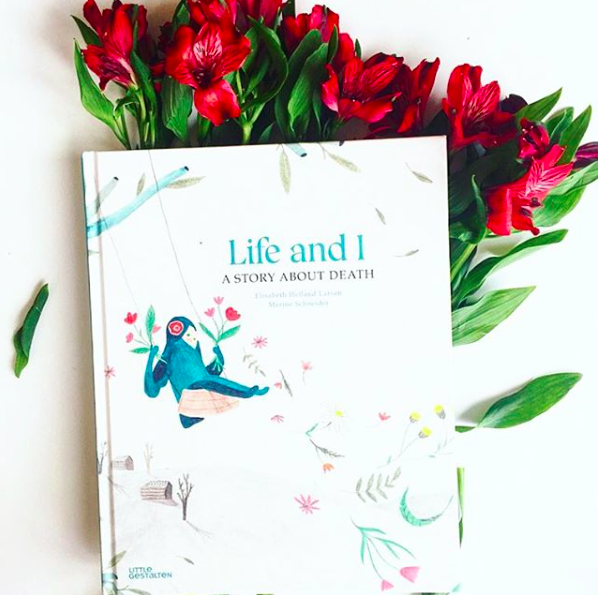Helping your Children Cope with Terrorism and Death
Goodness knows it has always been tough being a parent...
It is a big job! But every new era brings new challenges. Our age in particular is having to adapt not only to startling and frequent acts of terrorism and violence, but to the onslaught of graphic images and perpetual (almost inescapable) media coverage.
Unfortunately then, many of us are having to wonder more frequently how we can engage our children and students about difficult topics such as death, dying, violence, and terrorism.
Below you will find several awesome resources for talking with your kiddos about traumatic events. You can also download resource booklet for parents with grieving kiddos. In it you will find: a list of critical questions you can ask to determine whether your child is having a maladaptive response to a traumatic event. The booklet also includes a valuable list of rituals you can do with your family to help process grief together. PLUS (super bonus - woot) you'll find a great list of picture books that deal with the subject of death.
It is important to note that what a child encounters as traumatic is extremely subjective to him or her, and you should always allow the child to lead.
Often times, something that is not scary or threatening to you can be interpreted as such by a young, developing child (and vice versa). So, we should be careful to listen to a child's unique distress signals.
Some of the ones that I see parents most frequently missing are:
Frequent and repetitive play that has a “stuck” or confused ending. So a child that is playing an active-shooter drill over and over, but with a dark, startling, or nonsensical resolution lets me know that the child is having a hard time consolidating this experience
Easily startled and jumpy, or has aggressive outbursts when startled or anxious
Chronic stomach aches, headaches, or fatigue with no physical reason
You can download a longer list of distress signals in my grief rituals packet.
Often, when a child encounters death, even mass casualties, they can adjust well which may come as a surprise. Their resilience is especially pronounced when they have the loving support of a caregiver. I hope this is a valuable reassurance for those who have found this page amidst a fear that their child may not recover from something your family has recently experienced. Children are resilient.
However, Childhood Traumatic Reactions and Grief are very real threats that do occur. No matter your child’s reaction, their experience, resilience, growth, or floundering all deserve to be treated with care and respect. Hence, the screener and the rituals.
At the end of this article you will find resources for specific topics such as shootings and bombings, but first here are a few general guidelines for talking to your child about death. The following sections are adapted from the National Child Traumatic Stress Network and would be considered best professional standards by most psychologists.
TALKING TO YOUR CHILDREN ABOUT DEATH:
- Be truthful with your child. Keep in mind that many difficult truths need to be sensitively worded for children.
- Give short, simple, honest, and age-appropriate answers to questions. Don't overwhelm them with too much information.
- Listen carefully to their feelings without judgement (there are no 'wrong' feelings)
- Be ready to discuss the same things or answer the same questions over again. Many children need even very concrete information to be repeated several times and may be only able to take-in information intermittently.
- Do not be afraid to say that you don't know the answer to a question
- Children may have beliefs or ideas that are difficult to know unless you ask them. So ask. This includes "magical thinking" when a child thinks that they are somehow responsible for the event.
- Let your child know that he or she can come to talk to you anytime
- Make sure the child is not exposed to media that is violent, confusing, repetitive, or frightening. It is MUCH better for you to receive the news privately or with a parenting partner, and then relay what you have learned to your child as you see fit.
So often, parents put off talking to their children about death. I think that every single one of us wants to pretend that we can protect our children from pain and some of life’s most harsh realities. The sooner we realize that that hope is a fantasy and that our best approach is to view our role not as insulation from the world but as a companion and guide - the better.
Our children benefit when they know that they have a friend in these difficult moment. They want to hear about these things from you first. Learning about the tough stuff from friends or news sources is inevitable, but don’t let them wonder if perhaps you too are in the dark and thus - they need to protect you. You protect and guide them, not vice-versa.
SPECIFIC LINKS AND RESOURCES:
What follows are easy to use PDF pamphlet and printouts that will help guide you in talking to your children about any number of specific topics. Please, please, please engage these resources liberally knowing that they have been compiled by respected psychologists and committees of respected experts in the area of child trauma and traumatic reaction.
Talking to Children about Bombings
Parent Guidelines for Helping Youth after Bombings
Parent Tips for Helping PreSchool-Age Children after Disasters
Parent Tips for Helping School-Age Children after Disasters
After Crisis: Helping Young Children Heal
Restoring a Sense of Safety in the Aftermath of a Mass Shooting
Talking to Children about a Shooting
Psychological Impact of a Recent Shooting
I am always grateful that you have come to me at A Friendly Affair, and I hope you are always grateful that I value (and will communicate) clinical thresholds when necessary. Download the booklet and get some help determine whether your child might need professional support.
Most of these resources come from The Substance Abuse and Mental Health Services Administration's National Child Traumatic Stress Network, which is a wonderful website providing resources to not only help you understand traumatic reactions in children, but also to help guide your family in the journey of coping.
Sharing insights on topics like this is why I am so passionate about our community. If you haven't already joined our private AFA Parent Support Group, please do. I post exclusive free content, hold moderated discussions, and host LIVE Q&A special topic sessions on requested topics.




